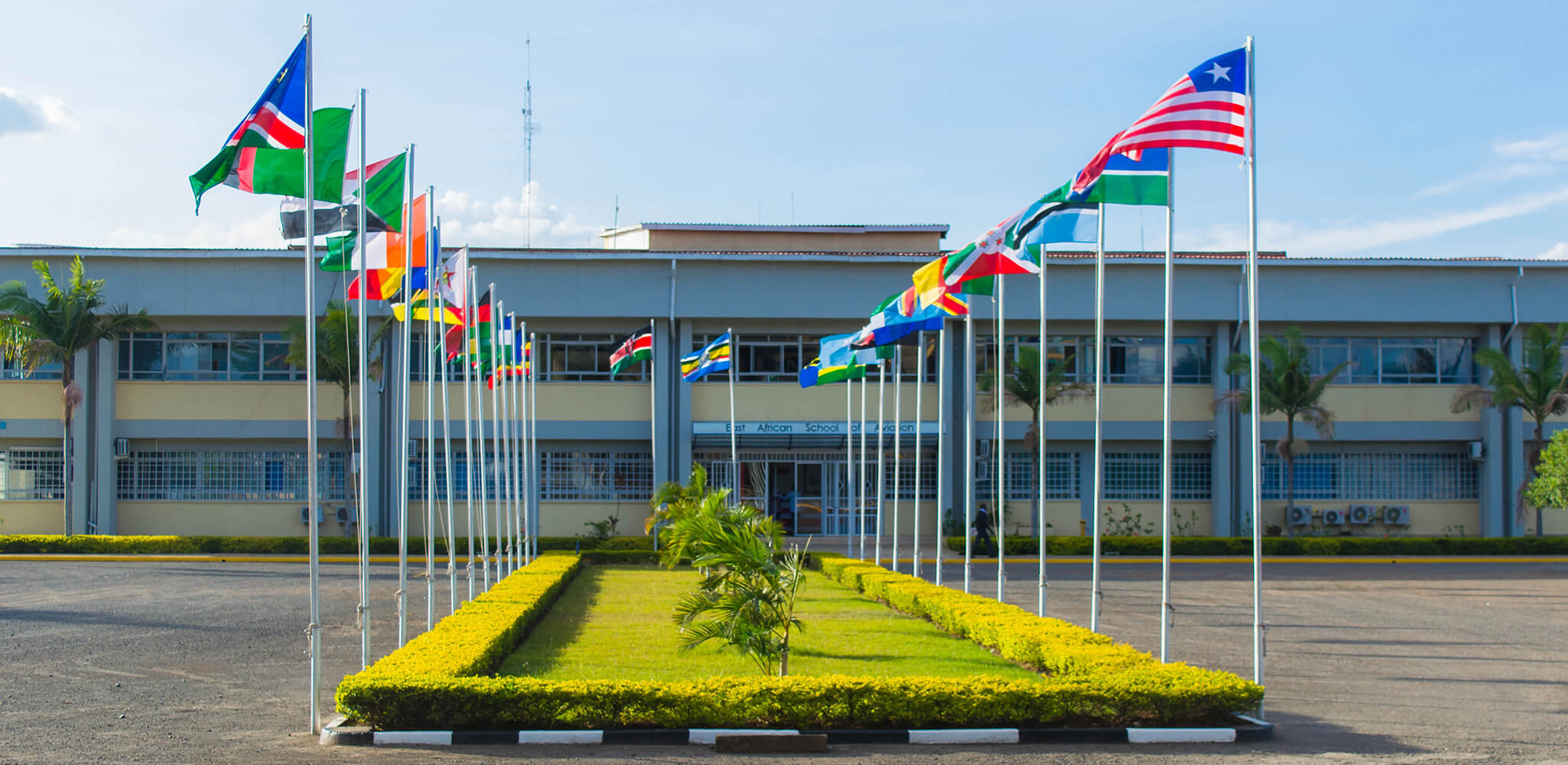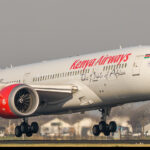The East African School of Aviation (EASA), situated in Nairobi’s vibrant Embakasi area, stands as a cornerstone of aviation training in Kenya and the wider East African region. As the training directorate of the Kenya Civil Aviation Authority (KCAA), EASA has built a reputation for excellence, offering globally recognized programs that prepare students for dynamic careers in aviation. Recognized as an International Civil Aviation Organization (ICAO) Regional Training Centre of Excellence and accredited by bodies like the Kenya National Examinations Council (KNEC) and the International Air Transport Association (IATA), EASA combines state-of-the-art facilities with industry-aligned curricula.
Why Choose EASA for Aviation Training?
EASA is more than just a training institution; it’s a launchpad for aviation professionals aiming to soar in a competitive industry. Here’s why EASA is a top choice for students in 2025:
- Global Recognition: As an ICAO Regional Training Centre of Excellence and IATA training partner, EASA’s qualifications are respected worldwide.
- Cutting-Edge Facilities: With campuses at Wilson Airport and Embakasi, EASA offers modern simulators, workshops, and training aircraft to ensure hands-on learning.
- Industry Connections: Partnerships with Moi University, Singapore Aviation Academy, and global aviation bodies provide students with unparalleled exposure.
- Diverse Career Paths: From engineering to cargo management, EASA’s programs cater to various aviation roles, aligning with Kenya’s growing aviation sector.
- Flexible Intakes: With admissions in January, May, and September, EASA accommodates students’ schedules.
For those passionate about aviation, EASA offers a pathway to rewarding careers in one of Kenya’s fastest-growing industries, contributing to the nation’s Vision 2030 goals.
Full List of EASA Courses for 2025/2026
EASA’s programs for the 2025/2026 cycle are designed to equip students with both theoretical knowledge and practical skills. While the institution offers a broad range of diplomas, certificates, and short courses, the focus here is on the three diploma programs listed for the upcoming cycle, as per the Kenya Universities and Colleges Central Placement Service (KUCCPS). Below is a detailed breakdown of these courses, with insights into their structure, duration, and objectives.
1. Diploma in Air Cargo Management
- Programme Code: 1535968
- Duration: 2 years (modular, full-time)
- Overview: This diploma prepares students to manage the complex logistics of air cargo operations, a critical component of global trade. The program covers cargo handling, documentation, safety regulations, and supply chain management, aligning with IATA standards.
- Key Modules:
- Air cargo operations and logistics
- Dangerous goods regulations
- Freight forwarding and customs clearance
- Aviation security and safety
- Supply chain management
- Skills Gained:
- Efficient cargo handling and storage
- Compliance with international shipping regulations
- Customer service in cargo operations
- Risk assessment and emergency planning
- Career Prospects:
- Cargo operations manager at airports or airlines
- Freight forwarder for logistics firms
- Customs officer with Kenya Revenue Authority
- Supply chain coordinator for multinational corporations
- Why Choose This Course?: With Kenya’s strategic position as an East African trade hub, air cargo professionals are in high demand, especially at Jomo Kenyatta International Airport (JKIA).
2. Diploma in Aeronautical Engineering (Avionics)
- Programme Code: 1535973
- Duration: 3 years (modular, full-time)
- Overview: This KNEC-accredited program focuses on the electronic systems that control aircraft, including navigation, communication, and flight management systems. It’s ideal for students interested in the high-tech side of aviation engineering.
- Key Modules:
- Aircraft electrical systems
- Avionics maintenance and troubleshooting
- Radar and navigation systems
- Digital electronics and microprocessors
- Aviation safety standards
- Skills Gained:
- Installation and maintenance of avionics equipment
- Diagnostic testing of navigation and communication systems
- Compliance with aircraft maintenance regulations
- Technical documentation and reporting
- Career Prospects:
- Avionics technician with airlines like Kenya Airways
- Maintenance engineer at aircraft repair facilities
- Technical consultant for aviation firms
- Inspector with KCAA or international regulators
- Why Choose This Course?: The rise of advanced aircraft technologies, such as fly-by-wire systems, makes avionics expertise a sought-after skill in the global aviation industry.
3. Diploma in Aeronautical Engineering (Airframes and Engines)
- Programme Code: 1535975
- Duration: 3 years (modular, full-time)
- Overview: This KNEC program trains students to maintain and repair aircraft structures and propulsion systems. It covers airframes, engines, and mechanical components, ensuring aircraft safety and performance.
- Key Modules:
- Aircraft structures and materials
- Gas turbine and piston engines
- Hydraulics and landing gear systems
- Airframe maintenance and inspection
- Aviation regulations and safety
- Skills Gained:
- Inspection and repair of aircraft frames and engines
- Use of diagnostic tools and maintenance equipment
- Adherence to airworthiness standards
- Component replacement and overhaul
- Career Prospects:
- Aircraft maintenance engineer with airlines or MRO (Maintenance, Repair, and Overhaul) organizations
- Airframe technician at airports
- Quality assurance inspector for aviation authorities
- Technical trainer for engineering schools
- Why Choose This Course?: With Kenya’s aviation sector expanding, skilled airframe and engine technicians are essential to ensure safe and efficient operations.
Additional EASA Programs
While the 2025/2026 cycle highlights the above diplomas, EASA offers a broader portfolio of courses across three departments: Air Navigation Services and Aircraft Maintenance, Aviation Business Services, and Aviation Safety and Security Management. Some notable programs include:
- Diploma in Airport Operations: Covers airside operations, passenger handling, and airport security.
- Diploma in Flight Operations/Dispatch: Trains students to coordinate flight plans and ensure operational safety.
- Certificate in Airline Cabin Crew: Prepares students for roles as flight attendants with a focus on customer service and safety.
- Craft in Aeronautical Communication Operations: Focuses on air traffic communication systems.
- IATA Short Courses: Includes Dangerous Goods Regulations, Air Cargo Introductory, and Travel & Tourism Foundation.
For a complete list, students can visit EASA’s official website or contact the admissions office.
Admission Requirements for EASA Programs
EASA’s admission process is designed to be accessible yet rigorous, ensuring students are prepared for the demands of aviation training. Below are the general requirements for the 2025/2026 diploma programs:
General Admission Criteria
- KCSE Grade: Minimum mean grade of C- (minus).
- Subject Requirements:
- C- or above in Mathematics and Physics (mandatory for aeronautical engineering programs).
- C- or above in English or Kiswahili (preferred for Air Cargo Management).
- Age: Applicants must be at least 18 years old by the start of the program.
- Application Documents:
- KCSE certificate or result slip (verified by KNEC).
- National ID or passport.
- Two passport-sized photographs.
- Completed application form (available via EASA’s eCitizen portal or KUCCPS).
- Additional Requirements:
- For aeronautical engineering, a strong aptitude for technical subjects is essential.
- Air Cargo Management applicants may need to demonstrate interest in logistics or business studies.
Application Process
- Via KUCCPS:
- Log into www.kuccps.ac.ke.
- Select EASA and your preferred program (use the programme codes provided).
- Submit before the KUCCPS deadline for 2025/2026.
- Direct Application:
- Visit www.easa.ac.ke or the Embakasi campus.
- Complete the online application form on the eCitizen portal.
- Upload required documents and pay the application fee (varies by program).
- Confirmation: Successful applicants receive admission letters via email or post.
- Funding Options: Apply for HELB loans or bursaries at www.helb.co.ke to cover tuition and living expenses.
For inquiries, contact EASA at:
- Phone: +254-716-164229, +254-716-164230, +254-788-777724
- Email: info@easa.ac.ke
- Address: P.O. Box 30689-00100, Nairobi, Kenya
Career Opportunities for EASA Graduates
EASA graduates are well-equipped to join Kenya’s thriving aviation industry, which contributes significantly to the country’s GDP through tourism, trade, and logistics. Below are potential career paths for the 2025/2026 diploma programs:
- Air Cargo Management:
- Cargo supervisors at JKIA, Moi International Airport, or regional hubs.
- Logistics coordinators for firms like DHL, FedEx, or Astral Aviation.
- Customs and compliance officers ensuring regulatory adherence.
- Entrepreneurs launching freight forwarding businesses.
- Aeronautical Engineering (Avionics):
- Avionics technicians maintaining navigation and communication systems for Kenya Airways or Safarilink.
- Maintenance engineers at facilities like Kipevu MRO or Wilson Airport.
- Technical advisors for aviation startups developing drone technology.
- Inspectors ensuring compliance with KCAA and ICAO standards.
- Aeronautical Engineering (Airframes and Engines):
- Airframe technicians performing structural repairs for commercial airlines.
- Engine specialists overhauling turbines for cargo and passenger aircraft.
- Quality control engineers at maintenance organizations.
- Trainers at aviation colleges like Nairobi Aviation College or Kenya Aeronautical College.
With Kenya’s aviation sector projected to grow, driven by airport expansions and increased regional connectivity, EASA graduates are poised to fill critical roles in airlines, airports, and regulatory bodies.
EASA’s Role in Kenya’s Vision 2030
EASA aligns closely with Kenya’s Vision 2030, which emphasizes economic growth through infrastructure, tourism, and trade. The institution contributes by:
- Skilling the Workforce: Training professionals to support Kenya’s aviation hubs, including JKIA and Eldoret International Airport.
- Boosting Tourism: Preparing graduates for roles that enhance passenger experiences, supporting Kenya’s tourism-driven economy.
- Facilitating Trade: Air Cargo Management graduates streamline logistics, strengthening Kenya’s position in regional trade networks.
- Advancing Technology: Aeronautical engineering programs foster innovation in aircraft maintenance and emerging technologies like drones.
- Ensuring Safety: EASA’s focus on ICAO standards ensures Kenya’s aviation sector meets global safety benchmarks.
By producing skilled professionals, EASA supports Kenya’s ambition to become a regional aviation leader, rivaling hubs like Addis Ababa and Johannesburg.
How to Apply to EASA for 2025/2026
Applying to EASA is straightforward, with options for both KUCCPS and direct applications. Follow these steps to secure your spot:
- Research Programs: Review the diploma programs to choose one that aligns with your career goals.
- Verify Eligibility: Ensure you meet the KCSE grade and subject requirements.
- Apply via KUCCPS:
- Access the KUCCPS portal at www.kuccps.ac.ke.
- Enter the programme code (e.g., 1535968 for Air Cargo Management).
- Submit your application by the 2025 deadline.
- Direct Application:
- Visit www.easa.ac.ke or the Embakasi campus.
- Complete the eCitizen portal application.
- Pay the application fee and upload documents.
- Secure Funding: Apply for HELB funding to cover tuition (details at www.helb.co.ke).
- Await Admission: Check your email or KUCCPS portal for confirmation.
For assistance, call +254-716-164229 or email info@easa.ac.ke.
Future Prospects for EASA
EASA is poised for growth as Kenya’s aviation sector expands. Future initiatives may include:
- New Programs: Potential courses in drone technology, sustainable aviation, and advanced air traffic management.
- Campus Expansion: Upgrades to Embakasi and Wilson Airport facilities to accommodate more students.
- Global Partnerships: Strengthened ties with institutions like the Singapore Aviation Academy and European Aviation Safety Agency.
- Research Focus: Increased emphasis on aviation innovation, including green technologies and autonomous flight systems.
As EASA continues to evolve, it remains committed to its mission of “Leading Aviation Excellence in Africa.”
The East African School of Aviation is a gateway to exciting careers in Kenya’s aviation industry. With its 2025/2026 diploma programs in Air Cargo Management, Aeronautical Engineering (Avionics), and Aeronautical Engineering (Airframes and Engines), EASA offers students the chance to gain world-class skills in a high-demand field. Whether you aspire to manage global logistics, maintain cutting-edge aircraft systems, or ensure the structural integrity of planes, EASA provides the training and opportunities to succeed.
Ready to take flight? Apply now through www.kuccps.ac.ke or www.easa.ac.ke, or contact EASA at +254-716-164229. Your aviation career starts here!





